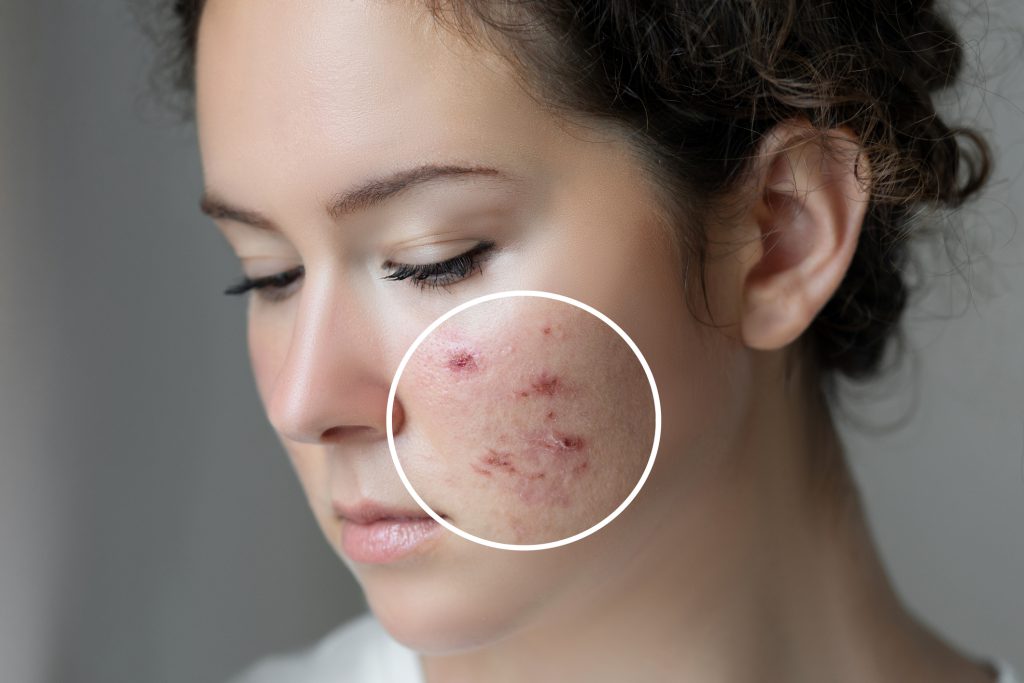A new vaccine targeting a variant of hyaluronidase may reduce acne-related inflammation, according to research in mice in Nature Communications.
Researchers identified two variants of hyaluronidase, an enzyme produced by Cutibacterium acnes (C. acnes). One variant, called HylA, is strictly made by C. acnes that are associated with acne. The other variant (HylB) is made by C. acnes associated with healthy skin.
In examining the structural and genetic differences between the two forms of the enzyme, the team found that while HylA worsens acne by causing inflammation, HylB actually appears to reduce inflammation and promote healthy skin. Their work further revealed that HylA and HylB originated from a common ancestor but evolved to have divergent effects.
The team then developed therapeutic approaches, including a vaccine and inhibitors, that targeted HylA, the acne-causing variant, and successfully reduced inflammation in a mouse model.
“We’re working to develop a therapy that’s much more tailored toward exactly what we know causes acne, rather than just generically blocking inflammation,” says George Y. Liu, MD, PhD, professor and chief of the Division of Pediatric Infectious Diseases at UC San Diego School of Medicine, in a news release. “We hope that by understanding how bacteria induce acne, we can come up with a single or combination vaccine that would take care of acne much more effectively than we can right now.”
The work builds on a 2019 study in which Dr. Liu led a team that used a synthetic sebum to develop a new mouse model that closely resembles human acne, allowing them to directly compare “good” and “bad” strains of bacteria.
“Our anti-acne directed approach has the potential to revolutionize acne therapies by offering more targeted treatments,” adds Irshad Hajam, a postdoctoral fellow in the Liu Lab and one of the paper’s lead authors. “What is truly remarkable about this work is we can now have more directed and effective anti-acne therapies while preserving the healthy skin microbiome, and that is a significant advancement in acne therapy.”


